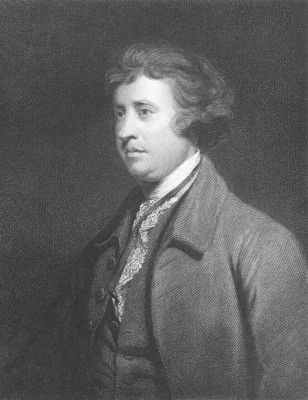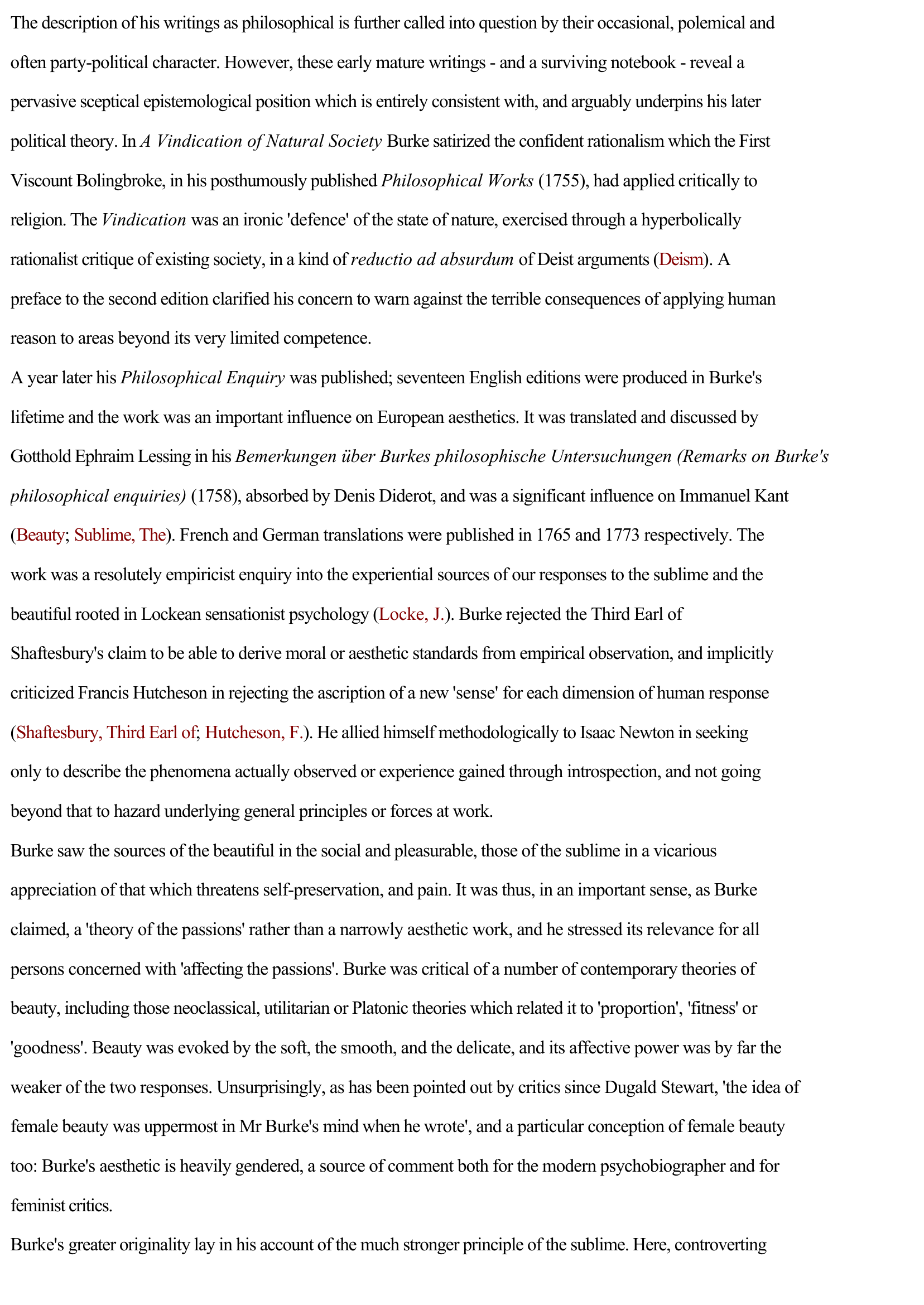Burke, Edmund
Publié le 22/02/2012
Extrait du document


«
The description of his writings as philosophical is further called into question by their occasional, polemical and
often party-political character.
However, these early mature writings - and a surviving notebook - reveal a
pervasive sceptical epistemological position which is entirely consistent with, and arguably underpins his later
political theory.
In A Vindication of Natural Society Burke satirized the confident rationalism which the First
Viscount Bolingbroke, in his posthumously published Philosophical Works (1755), had applied critically to
religion.
The Vindication was an ironic 'defence' of the state of nature, exercised through a hyperbolically
rationalist critique of existing society, in a kind of reductio ad absurdum of Deist arguments ( Deism ).
A
preface to the second edition clarified his concern to warn against the terrible consequences of applying human
reason to areas beyond its very limited competence.
A year later his Philosophical Enquiry was published; seventeen English editions were produced in Burke's
lifetime and the work was an important influence on European aesthetics.
It was translated and discussed by
Gotthold Ephraim Lessing in his Bemerkungen über Burkes philosophische Untersuchungen (Remarks on Burke's
philosophical enquiries) (1758), absorbed by Denis Diderot, and was a significant influence on Immanuel Kant
(Beauty ; Sublime, The ).
French and German translations were published in 1765 and 1773 respectively.
The
work was a resolutely empiricist enquiry into the experiential sources of our responses to the sublime and the
beautiful rooted in Lockean sensationist psychology ( Locke, J. ).
Burke rejected the Third Earl of
Shaftesbury's claim to be able to derive moral or aesthetic standards from empirical observation, and implicitly
criticized Francis Hutcheson in rejecting the ascription of a new 'sense' for each dimension of human response
(Shaftesbury, Third Earl of ; Hutcheson, F. ).
He allied himself methodologically to Isaac Newton in seeking
only to describe the phenomena actually observed or experience gained through introspection, and not going
beyond that to hazard underlying general principles or forces at work.
Burke saw the sources of the beautiful in the social and pleasurable, those of the sublime in a vicarious
appreciation of that which threatens self-preservation, and pain.
It was thus, in an important sense, as Burke
claimed, a 'theory of the passions' rather than a narrowly aesthetic work, and he stressed its relevance for all
persons concerned with 'affecting the passions' .
Burke was critical of a number of contemporary theories of
beauty, including those neoclassical, utilitarian or Platonic theories which related it to 'proportion' , 'fitness' or
'goodness' .
Beauty was evoked by the soft, the smooth, and the delicate, and its affective power was by far the
weaker of the two responses.
Unsurprisingly, as has been pointed out by critics since Dugald Stewart, 'the idea of
female beauty was uppermost in Mr Burke's mind when he wrote' , and a particular conception of female beauty
too: Burke's aesthetic is heavily gendered, a source of comment both for the modern psychobiographer and for
feminist critics.
Burke's greater originality lay in his account of the much stronger principle of the sublime.
Here, controverting.
»
↓↓↓ APERÇU DU DOCUMENT ↓↓↓
Liens utiles
- « RÉFLEXIONS SUR LA RÉVOLUTION DE FRANCE » D'EDMUND BURKE
- « RÉFLEXIONS SUR LA RÉVOLUTION DE FRANCE » D'EDMUND BURKE
- RECHERCHE PHILOSOPHIQUE SUR L'ORIGINE DE NOS IDÉES DU SUBLIME ET DU BEAU d’Edmund Burke
- RÉFLEXIONS SUR LA RÉVOLUTION FRANÇAISE d’Edmund Burke. Résumé et analyse
- Burke, Edmund (politique & socièté).

































